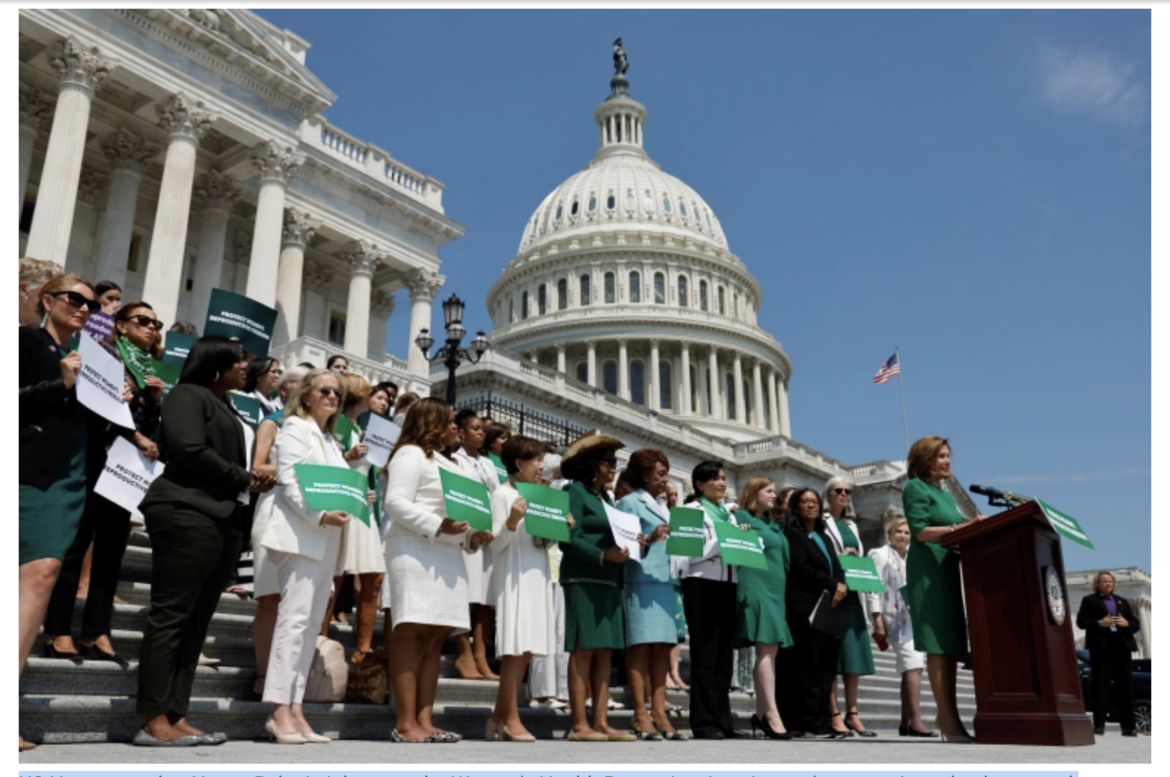Congressional Democrats and their supporters are seeking to enact a federal statute to ensure what they consider to be abortion rights. Their efforts are short-sighted and offer an illusory solution that does not definitively settle the issue of abortion.
As a preliminary matter, Congress does not have unlimited authority to enact laws on any subject it wants. The legislative powers of Congress are set forth under the U.S. Constitution, Article I, Section 8, Clauses 1-18. Nothing in those provisions gives Congress unlimited power to legislate on any subject it chooses. Although the Necessary and Proper Clause (Article I, Section 8, Clause 18) has been construed broadly by the Federal courts, it has not been construed as granting Congress unlimited, unfettered power to enact legislation on any subject it chooses. Furthermore, apart from the Separation of Powers Doctrine (which precludes Congress from exercising any power belonging to the Executive or Judicial Branches), Congress�s legislative authority is limited and constrained by various provisions of the U.S. Constitution � including Article I, Section 9; the Bill of Rights (U.S. Constitution, Amendments 1-10); Amendment 13; Amendment 14 (Section 4); Amendment 15; Amendment 19, Clause 1; Amendment 24, Section 1; and Amendment 26, Section 1. Any claim that Congress has unlimited or unfettered authority to legislate on any subject Congress chooses is untenable. And the Supremacy Clause (U.S. Constitution, Article VI, Section 2) only applies if federal laws are enacted in pursuance of the Constitution.
Apart from the constitutional limits on Congress�s legislative authority, there are prudential reasons why Congressional Democrats and their supporters should refrain from trying to enact a federal statute to ensure once and for all what they consider to be abortion rights.
If Congress has the legislative authority to enact a statute on subject X (that does not violate any specific provision of the Constitution), then Congress also has the legislative authority to amend or repeal that statute at a later date. Nothing in the Constitution grants Congress the authority to enact a law with the proviso that the law cannot be amended or repealed by Congress at a later date. No Congress can restrict or prevent a future Congress from exercising its legislative authority. No Congress can make a provision of the U.S. Code irrevocable or unalterable.
Even if a Federal court were to conclude that Congress has the legislative authority to enact a statute on abortion rights (which does not violate any specific provision of the Constitution), such a judicial ruling would logically mean that Congress also has the legislative authority to amend or repeal that statute at a later date. So, even if a Federal court were to rule that Congress has the legislative authority to grant abortion rights, then such a ruling logically means Congress also has the legislative authority to limit, condition, or restrict abortion rights in the future � so long as those limits, conditions or restrictions do not violate any specific provision of the Constitution.
Accordingly, even if Federal courts were to conclude that Congress has the authority to enact legislation that preempts all State laws limiting or restricting abortion, then Congressional Democrats cannot guarantee that a future Congress will not enact (1) new legislation that repeals that earlier legislation; or (2) new legislation limiting or restricting abortion rights that preempts all State laws granting broad abortion rights. Federal supremacy is politically neutral and does not favor or disfavor legislation on the basis of which political party was in the majority when the legislation was enacted.
Congressional Democrats cannot codify abortion rights once and for all by the enactment of a Federal statute. Conversely, right-to-life advocates cannot limit or restrict abortion once and for by the enactment of a Federal statute. No Federal statute on abortion can be final and irrevocable.
The abortion issue cannot be resolved in all 50 States through Congressional passage of legislation. Just as Congress cannot unilaterally impose its idea of a civil code or a criminal code on all 50 States, Congress cannot unilaterally impose it idea of abortion rights on all 50 States. And, whatever legislation Congress can constitutionally pass concerning abortion (e.g., allowing, limiting or prohibiting Federal funding for abortion) will always be subject to possible reconsideration and amendment or repeal by Congress in the future.
People seeking to address abortion through the legal process should look to the Ninth and Tenth Amendments of the U.S. Constitution and seek to resolve their differences on abortion on a State-by-State basis (so long as any State legislation or State constitution does not violate any provision of the U.S. Constitution that otherwise limits or prohibits State action).

